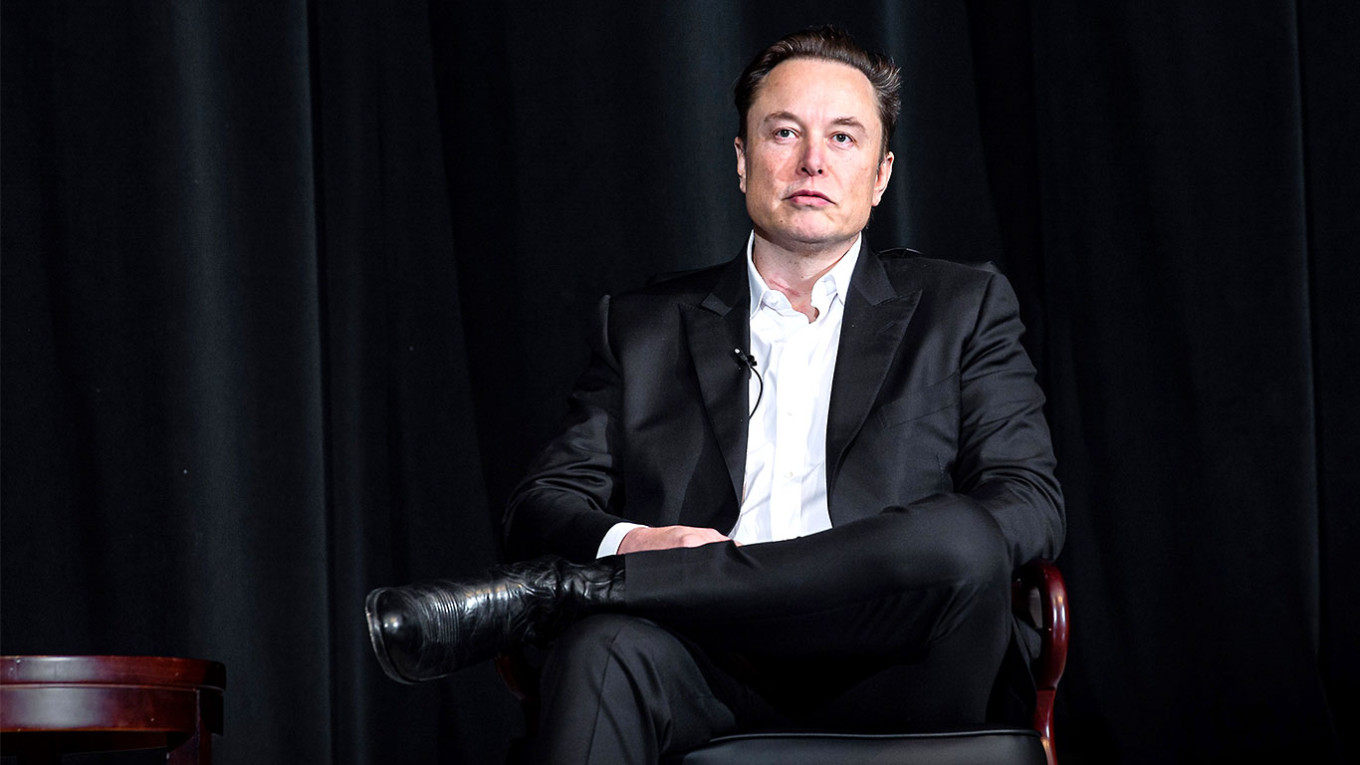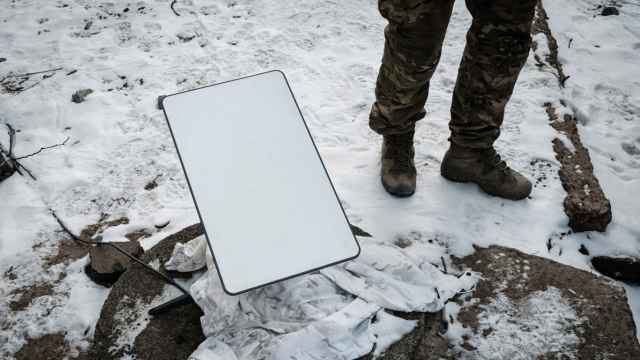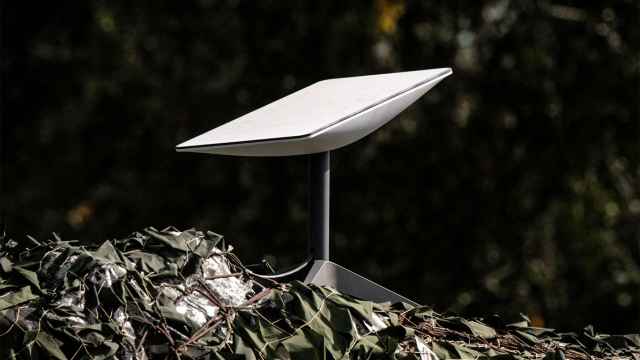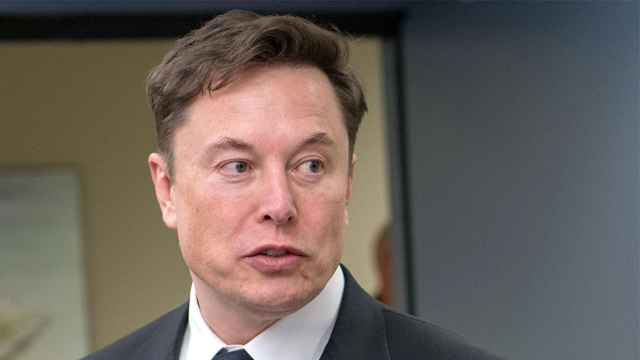Charity is a cold grey loveless thing. If a rich man wants to help the poor, he should pay his taxes gladly, not dole out money at a whim
These words are commonly attributed to Britain’s post-war Labour Prime Minister, Clement Attlee, who laid the foundations for the security of Britain’s people via the welfare state and the establishment of NATO. His point was that philanthropy is an unreliable safety net. Elon Musk’s “charity” toward Ukraine has embodied these risks, most recently with his thwarting of a Ukrainian mission to take out Russian warships moored in annexed Sevastopol. Ships from which cruise missiles are launched at Odesa, Mykolayiv and many other bustling and beautiful Ukrainian towns and cities.
Given the damage and terror inflicted by Russia’s Black Sea Fleet, many of Ukraine’s supporters have expressed outrage at Musk’s decision. But this anger is misdirected. Musk’s decision — as is his right as a private individual and the owner of Starlink — is not the most outrageous element. Instead, it’s the fact that Ukraine has been left dependent on the whims of one man and what he perceives (or is persuaded to see) as right or wrong.
Bluntly, Musk should not be in a position to have this much power over the course of the war. If he does, then the problem is with the interaction between Western capitalism and national security, and the West’s hesitant response to Russia’s war on Ukraine.
In an oligarchy, great wealth guarantees political influence. The term is often applied to Russia where, ironically, the opposite is true: political status guarantees great wealth. This was the fatal flaw in the argument that if London or Cyprus welcomed Russian elites’ money and mistresses, it would give the West leverage over Russian politics.
In Russia, the super-rich don’t have power over politics. Their personal and commercial interests ultimately lie with the Kremlin. As a result, the vast majority of Russia’s wealthy refuse to condemn Putin and often continue to enable the Russian war effort, with little regard for dead Ukrainian children.
In the West, to varying degrees, the situation is different. Those with great wealth are almost guaranteed political influence — if not through the political system of donations, then by buying up important infrastructure and services, including in the emerging tech sector. This power is being utilized in the war on Ukraine both for and against the country’s defense.
Just a few days after Russia’s full-scale invasion, in response to a request from Mikhaylo Fedorov, Ukrainian infrastructure minister, Musk agreed to supply Starlink technology to ensure Ukrainians had reliable internet access and communications. Since its activation, Starlink has been crucial to the military and civilians alike.
At first, 85% of the terminals and 30% of the internet connectivity were paid for by the United States and Poland, among others. In September, Washington began to pay an even greater, as yet undisclosed, share of the costs. This is good business for Starlink’s owner, SpaceX, as its value has surged thanks to the free advertising provided by the war. These profits are unlikely to be returned to the U.S. government, nor to Ukraine.
Alongside this, Musk has put limits on Ukraine’s use of Starlink for operations to regain its territory from occupying Russian forces. This messy setup draws attention to the many risks of allowing commercial operators into the military space without due oversight and strong regulation — and without strong regulation of, and appropriately transparent and accountable, private-public relationships in the emerging technology sector.
But more fundamentally, it is hard to imagine one businessman being allowed to wield this level of military influence if the U.S. or major European countries, which perceive their own core national interests to be in mortal danger. Generally, those that pay the piper find a way to decide the tune if they really want to. There are many reasons why Washington does not insist on this, including the United States’ laissez-faire economic culture and, admittedly not total, reticence overseeing Ukraine conduct strikes on Russian military bases in Russia proper and in occupied Crimea.
The fact that Musk holds decisive power over such an important part of Ukraine’s military operations stems from a deeply deficient global capitalist structure. But the United States’ reservations derive from a political failing: the false hope in many Western capitals that this war can be contained within Ukraine.
It cannot. Earlier this week, debris from a Russian drone landed inside the Romanian border. At first, Romania initially denied Ukraine’s evidence of this, before finally admitting it. While these drone attacks were most likely accidental, this won’t always be the case. The lack of any firm, albeit proportional, response will do little to dissuade the Russian military from further attacks close to NATO’s borders.
Reading Russia’s security strategy will disabuse anyone of the notion that its invasion of Ukraine is a mere effort to restore this or that bit of Catherine the Great’s empire. The Kremlin’s December 2021 ultimatum insisted on a post-Soviet dominion and Central European buffer zone against NATO. This demonstrates that the war is part of a larger Russian strategy to establish full control over Ukraine and its people, with an eye to assuring its role as a major power, with a defined sphere of influence, in a more multipolar international order.
This multipolar age has already arrived. What we are witnessing now is not the battle over its emergence but Russia’s fight to decide what the global neighborhood will look like. Who gets what house, who is even allowed a house, and what are the terms for the living arrangements. This is Russia’s gambit in Ukraine. What it gets away with will not only decide whether Ukraine has a house or Russia’s house is even bigger, but will determine the security and rules that apply to everyone’s home.
The danger is not containable within Ukraine. Eighteen months into what will be a long war, it is absurd that the commercial interests and political whims of one businessman should remain so influential. When you are in danger, you need a workable, strategic safety net, not the hope that a rich man might take pity on you.
Capitalism should be subjugated to the needs, democratic will, and security of the people, not the other way around. It is in the interests of all Europeans that Ukraine wins, and the sooner the better. After all, the West has the luxury of diverting capital to arm Ukraine and save its people. But the longer it takes, the more likely it becomes that it won’t just be Ukrainians who need that charity.
A Message from The Moscow Times:
Dear readers,
We are facing unprecedented challenges. Russia's Prosecutor General's Office has designated The Moscow Times as an "undesirable" organization, criminalizing our work and putting our staff at risk of prosecution. This follows our earlier unjust labeling as a "foreign agent."
These actions are direct attempts to silence independent journalism in Russia. The authorities claim our work "discredits the decisions of the Russian leadership." We see things differently: we strive to provide accurate, unbiased reporting on Russia.
We, the journalists of The Moscow Times, refuse to be silenced. But to continue our work, we need your help.
Your support, no matter how small, makes a world of difference. If you can, please support us monthly starting from just $2. It's quick to set up, and every contribution makes a significant impact.
By supporting The Moscow Times, you're defending open, independent journalism in the face of repression. Thank you for standing with us.
Remind me later.








